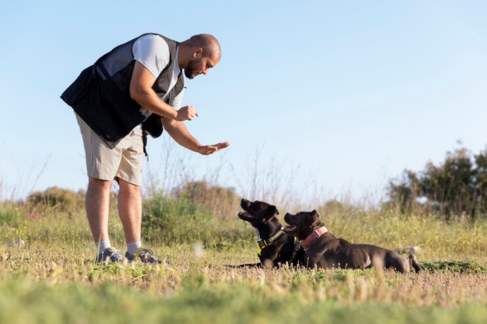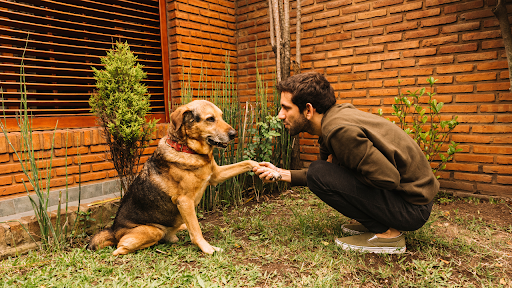Common Myths Stopping From Choosing Dog Behaviour Training Course

Beware the looming threat to your canine companionship! In the world of dog behavior training, myths cast a shadow over the path to a harmonious bond with our furry friends.
Here, we unveil the sinister misconceptions that hinder many from opting for essential dog behavior training courses.
Join us on this journey to dispel the myths, ensuring a secure and enriched relationship with your four-legged family member.
The Origin of Myths
Misconceptions surrounding dog behavior training courses often arise from the belief that such services are solely for “problem” dogs.
The truth is these courses are designed to enhance the bond between all dogs and their owners, irrespective of behavioral challenges. The idea that only troubled dogs need training is a myth we must dispel.
The Crucial Role of Professional Dog Training Services
Professional dog training services play a pivotal role in debunking the myths that shroud canine companionship.
Contrary to popular belief, these services aren’t a sign of failure but rather a commitment to understanding and strengthening the communication between humans and their dogs.
By enrolling in professional dog training services, owners gain valuable insights into canine behavior, learning effective communication techniques and positive reinforcement methods.
This debunking process begins with acknowledging that seeking professional guidance is not a sign of weakness but a proactive step towards a fulfilling partnership.
Unveiling the Myth: “I Can Handle It on My Own”
Another prevailing myth asserts that dog behavior issues can be managed without professional assistance. While it’s true that some basic training can be done at home, navigating complex behavioral challenges often requires the expertise of trained professionals.
Group dog training, for instance, offers a supportive environment where dogs can socialize and learn valuable skills under the guidance of experienced trainers. Dismissing the myth of solo handling opens the door to a collaborative approach that benefits both owner and canine.
Group Dog Training: A Community Approach to Canine Education
One myth that significantly jeopardizes canine companionship is the misconception that group dog training is ineffective or chaotic.
On the contrary, group training provides a structured and controlled setting where dogs learn to socialize, respond to commands amidst distractions, and build positive interactions with other dogs and people.
The benefits of group dog training extend beyond behavior correction. Dogs in a group setting develop essential social skills, reducing anxiety and fear-based behaviors.
As owners witness the progress of their dogs alongside others, a sense of community and shared accomplishment emerges, dispelling the myth that group training is less effective than individual sessions.
Debunking the Myth: “All Dogs Naturally Behave Well”
One of the most detrimental myths is the belief that all dogs naturally behave well without the need for training. This notion undermines the fact that dogs, like humans, require guidance to navigate the complexities of our shared world.
Proper behavior is not instinctual; it’s learned through consistent training and positive reinforcement.
By dispelling the myth of innate good behavior, we open the door to understanding that training is a fundamental aspect of responsible dog ownership, ensuring the safety and happiness of both the pet and its human companions.
Conclusion
In dispelling the myths surrounding dog behavior training, we pave the way for a deeper connection with our furry companions.
Recognizing that training is not reserved for troubled dogs, embracing professional guidance, and valuing the community approach of group training are essential steps. Let’s shatter the myth of innate good behavior and embark on a journey of understanding, fostering a secure, enriched bond that transcends misconceptions. A harmonious canine companionship awaits those who embrace the truth.







